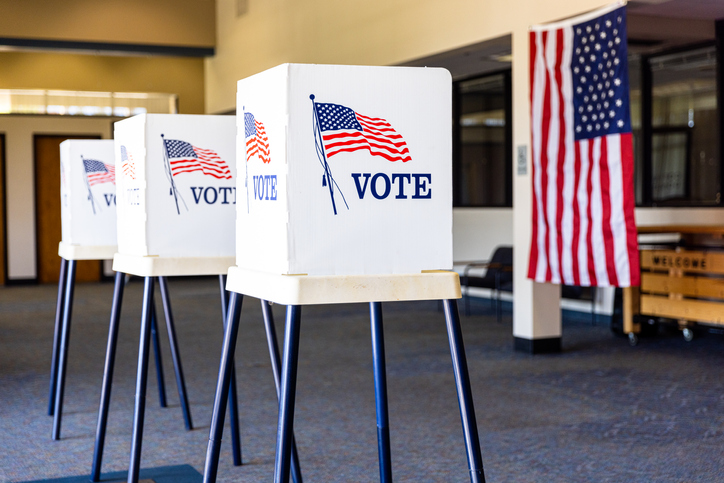Do you know the true extent of your voting rights in presidential elections? Brace yourself for a shocking revelation: residents of Washington, D.C. were once denied this privilege. The Twenty-third Amendment, ratified in 1961, finally granted them their rightful place at the ballot box. However, don’t get too comfortable just yet. Despite being allocated electoral votes, D.C. residents still lack representation in the U.S. Congress. Join us as we delve into the intricacies of this amendment and explore its implications on democracy and governance in our nation’s capital.
Background and Ratification of the Twenty-third Amendment
You should know that the Twenty-third Amendment was ratified in 1961, allowing residents of the District of Columbia to vote for presidential electors. The ratification process for this amendment involved the U.S. Congress proposing it on June 16, 1960, and its certification taking place on March 29, 1961. This amendment holds historical significance as it addressed the long-standing issue of D.C. residents being denied voting rights in presidential elections. Its impact on elections is evident as it allocates electoral votes to Washington, D.C., equal to the number of the least-populated state. From a legal standpoint, the amendment recognizes D.C. residents’ right to participate in choosing their president. Public opinion has played a role in advocating for this change, highlighting the need for fair representation and democratic principles in our electoral system.
Voting Rights for Washington, D.C. Residents
Residents of Washington, D.C. historically lacked the privilege of electing federal public officials before the Twenty-third Amendment was ratified in 1961. Despite this amendment granting D.C. residents the right to vote in presidential elections, they still face challenges when it comes to representation in Congress. Currently, D.C. residents are unrepresented in both the Senate and the House of Representatives. Various organizations advocate for full rights and representation for D.C. citizens, but no concrete solutions have been implemented yet.
Public opinion on this matter is divided. Some argue that granting D.C. statehood would provide much-needed representation, while others express concerns about potential outsized power and financial benefits.
An impact assessment is necessary to evaluate the consequences of different solutions on democratic self-rule and ensure fair representation for all citizens.
Representation in the U.S. Congress
If you’re a resident of Washington, D.C., your lack of voting representation in the U.S. Congress means that your voice is not being fully heard and represented at the federal level. This challenge to democracy stems from historical context, as D.C. residents have been denied the privilege of electing federal public officials for years. Although efforts have been made through advocacy to grant full rights and representation, obstacles persist. The current situation leaves D.C. residents without voting representatives in both the House and Senate, limiting their ability to shape legislation and policies that directly impact their lives. Potential solutions include granting statehood to D.C., which would provide full congressional representation, or amending the Constitution to give D.C. residents voting representation in Congress. By addressing these challenges and finding solutions, we can ensure that all citizens’ voices are heard and democracy is upheld at every level of government.
Failed Attempts to Change Representation
The failed attempts to change representation in Congress for Washington, D.C. highlight the ongoing struggle for full rights and representation for its residents. Efforts for statehood have been made by various organizations, seeking to grant D.C. citizens the same rights as residents of other states. However, arguments against representation persist, with concerns about outsized power and financial benefits being raised. In a historical context, Washington, D.C. has long been denied voting representation in the U.S. Congress, despite having a nonvoting elected delegate in the House of Representatives since 1970. The political implications are significant, as D.C. residents continue to be unrepresented in Congress and lack voting representation in the Senate. Public opinion on this issue varies, with proponents arguing for equal rights and opponents questioning potential consequences of granting full representation to Washington, D.C.’s residents
Text of the Twenty-third Amendment
When reading the text of the Twenty-third Amendment, you will notice that it grants the District of Columbia the ability to appoint electors for presidential and vice-presidential elections. This amendment has significant implications for the electoral process in the United States. It was ratified in 1961, allowing residents of Washington, D.C. to have a voice in choosing their presidential candidates. The historical context behind this amendment stems from the fact that D.C. residents were historically denied voting rights in federal elections. However, legal interpretations and challenges have arisen regarding representation in Congress for D.C. residents. While this amendment grants them voting rights in presidential elections, it does not provide full representation or statehood status for Washington, D.C., leaving ongoing debates and discussions about these issues unresolved.
Background and Purpose of the Twenty-Third Amendment
Understanding the background and purpose of the Twenty-Third Amendment is crucial to comprehending its impact on voting rights in Washington, D.C. Here’s what you need to know:
- Purpose:
- The amendment allows residents of the District of Columbia to vote for presidential electors.
- It does not grant statehood or provide representation in Congress.
- The District remains governed by Congress under the Seat of Government Clause.
- Disenfranchisement:
- Prior to the amendment, District residents couldn’t vote for federal offices unless they were registered in a state.
- Lack of voting representation in Congress means no control over taxes and vulnerability to Congress overriding local laws.
- Democratic Self-rule:
- Legislative representation is essential for democratic self-rule.
- The ongoing struggle for full representation highlights concerns about second-class citizenship.
The Twenty-Third Amendment has implications for D.C., but it doesn’t address full statehood or congressional representation.
Failed Attempts to Grant Full Representation to the District
Failed attempts have been made to grant full representation to the District of Columbia, including the 1978 adoption of The District of Columbia Voting Rights Amendment. This amendment aimed to treat the District as a state and provide it with seats in the House of Representatives and the Senate. However, it failed to be ratified by enough states before the ratification period expired. Despite ongoing statehood efforts and advocacy from various organizations, D.C. residents continue to be without voting representation in Congress. The lack of congressional debates and constitutional challenges surrounding this issue highlight the ongoing struggle for district representation and equal voting rights. A table summarizing these failed attempts could help illustrate the history and significance of this topic:
| Year | Attempt | Result |
|---|---|---|
| 1978 | The District of Columbia Voting Rights Amendment | Not ratified |
Lack of Voting Representation in the Senate and the House for District Residents
To fully participate in the democratic process, D.C. residents like yourself currently lack voting representation in both the Senate and the House of Representatives. This disenfranchisement raises concerns about taxation without representation and denies you a voice in shaping laws that affect your daily life. Here are some key points to consider:
- Arguments for representation:
- Representation ensures that your interests and concerns are heard and addressed.
- It allows you to hold elected officials accountable for their actions.
- Disenfranchisement concerns:
- Without voting representation, you have limited power to shape policies that impact your community.
- Your voice is not adequately represented in decisions made by Congress.
- Taxation without representation:
- As a taxpayer, it is unfair that you contribute financially but do not have equal say in how those tax dollars are used.
- Power and financial benefits:
- Voting representation would give you a stronger influence over legislation that affects funding, resources, and opportunities for D.C.
- Democratic self-rule:
- Representation is essential for democratic self-rule, ensuring that all citizens have an equal opportunity to participate in the political process.




